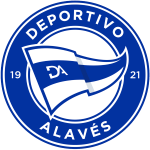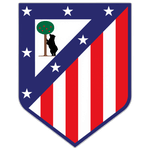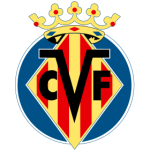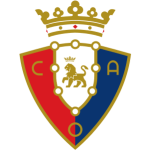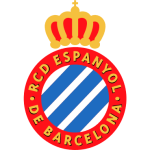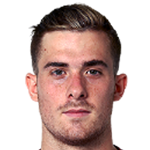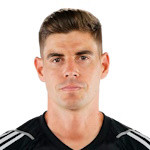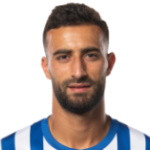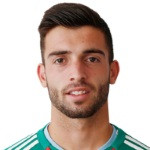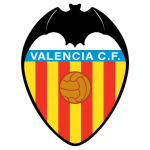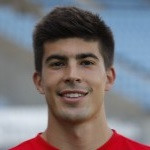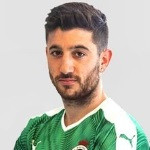Founded on 23 January 1921 and based in the city of Vitoria in Spain, Deportivo Alavés, a Spanish club that participates in the Spanish Primera División. It was initially named ‘Sports Friends’, but was officially given the name ‘Deportivo Alavés ’. It has earned a couple of nicknames like ‘Glorios’, ‘Alavestas’, and ‘Babazorros’. The DA emblem emblazoned on the jersey represents the deep connection between the club and Vitoria-Gasteiz. It runs as the third most successful Spanish club after Athletic Club of Bilbao and Real Sociedad of San Sebastian, in the country of Basque Country. Deportivo Alavés currently enjoys a newly assured stability and cautious optimism. After having been on the verge of bankruptcy in 2011, the club was bought by the Baskonia-Alavés Group. Félix Fernández de Trocóniz became president and thereafter implemented a successful system of management built on sound finances coupled with long-term viability. Therefore, the club returned to La Liga and started to establish itself as a fixture of the top competition. The main objective in the 2024-25 season seems to be to consolidate their spot in the league while adding to the squad in select areas through the new manager, Eduardo Coudet. Let's explore Deportivo Alavés fans, sponsors, home ground, stadium, history, net worth, and trophies.
Deportivo Alavés, a Spanish football club based in Vitoria-Gasteiz, province of Álava, located in the Basque Country. Founded on January 23, 1921, as Sport Friend's Club, it changed to its current name in 1922. Nicknamed Babazorros (Bean Growers), due to the agricultural roots of the area, Alavés is the third most successful team in the Basque Country, behind Athletic Club and Real Sociedad. The club has spent its history bouncing between La Liga and the Segunda División, with some prosperous years in the early 2000s. They made their European debut and had their most successful year in the 2000–01 season when they reached the UEFA Cup Final, narrowly losing 5–4 to Liverpool in a thrilling golden goal match. In 2017, Alavés reached the Copa del Rey Final, also losing to Barcelona, but by a score of 3–1. Alavés' stadium, Mendizorrotza, is closely tied to the community. The club was dysfunctional, threatened with bankruptcy in the mid-1990s with financial struggles. In 2006, when the Baskonia-Alavés Group, led by Saski Baskonia, stabilised the club financially. Alavés has won four Segunda División trophies and has a loyal, passionate fanbase that consistently backs the team. The blue and white kits they wear every match represent Basque pride. Since Luis García took over the position of coach.
The financial model of Deportivo Alavés is indeed a flagship for great management and strategic sustainability, especially for one of the clubs of this league, compared to the giants of La Liga. The club was almost bankrupt in 2011. Since then, it has been revamped under the shadow of Grupo Baskonia-Alaves. The multi-sport group has, by implementation of a model emphasising financial stability and growth, been able to see the establishment elevated to, and hold there in, the Primera Division of Spain. The primary revenues for the club include broadcasting rights, constituting a large part of its annual budget, followed by match-day revenues and commercial partnerships.
To lessen its dependence on the revenue from broadcasting rights - and for greater financial stability going forward - the club is proactively looking at alternative revenue sources, such as player trading. With their strategy of bringing in young players, developing them, and selling them on for profit, they have created a significant amount of transfer revenue. They have attempted to add to this model with their international interests, most recently the purchase of a Croatian club, NK Istra, which acts as a player development vehicle to supply players to the Ukrainian club. The management is focused on the financial situation, particularly with its aim to increase its revenue to over €100 million in the mid-range, to allow the Ukrainian club to compete with the larger clubs on a more sustainable basis. Deportivo Alavés net worth stands at €150 million.
Deportivo Alavés has a variety of sponsorship agreements that are vital to the club's finances and operational model. Alavés has strong connections to the Basque Country and often partners with both local and national businesses. Some of the sponsorships are essential to the club's revenue streams to adequately compete in La Liga and to further the development of players through its academy.
The most obvious sponsorships are found on the officially approved kit of the team. Sponsorship deals are formalised for a defined duration, minimising paperwork and providing a reliable stream of income for the club and operations. In addition to the primary shirt sponsors and kit sponsors, the club has several official partners offering goods and services related to industries ranging from construction to consumer packaged goods that serve as income to secure the overall commercial health of the club. This table summarizes Deportivo Alavés' sponsors.


